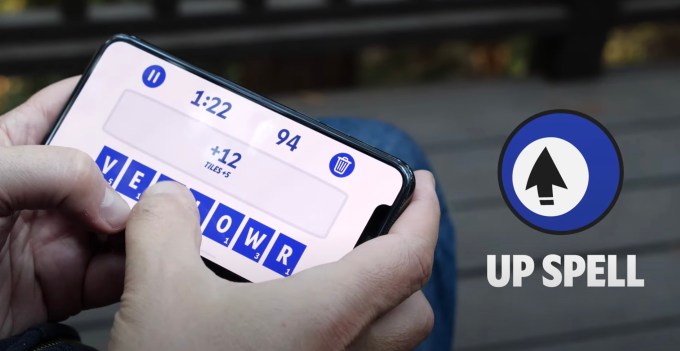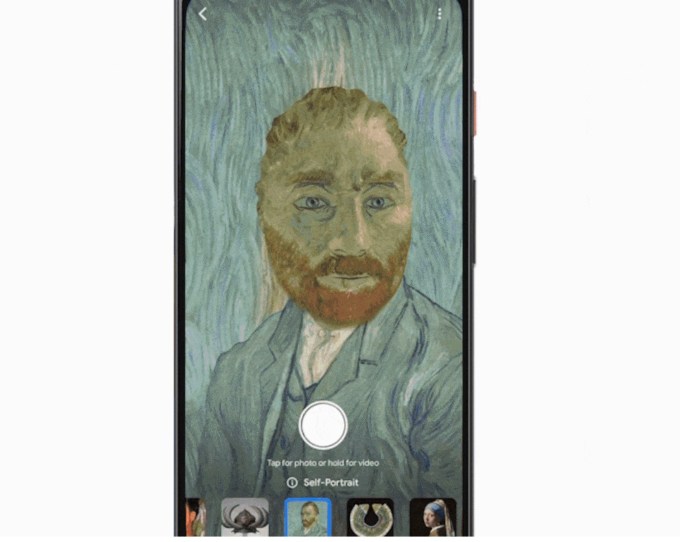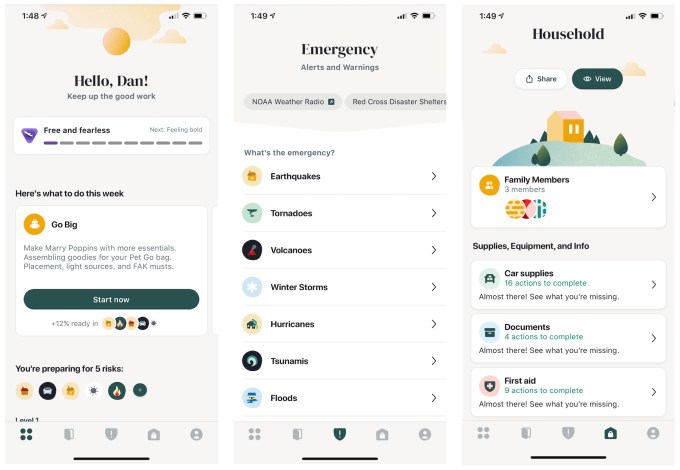Welcome back to This Week in Apps, the TechCrunch series that recaps the latest OS news, the applications they support and the money that flows through it all.
The app industry is as hot as ever, with a record 204 billion downloads and $120 billion in consumer spending in 2019. People are now spending three hours and 40 minutes per day using apps, rivaling TV. Apps aren’t just a way to pass idle hours — they’re a big business. In 2019, mobile-first companies had a combined $544 billion valuation, 6.5x higher than those without a mobile focus.
In this series, we help you keep up with the latest news from the world of apps, delivered on a weekly basis.
Apple declared monopoly by U.S. House Judiciary subcommittee on antitrust
Apple was one of the four big tech companies the House Judiciary subcommittee on antitrust declared as having enjoyed monopoly power in the U.S. The report suggests that Congress make changes to break up their businesses. In Apple’s case, the company was deemed to have market power in the app distribution business, meaning its App Store. The report agrees that while the App Store provides significant benefits to both consumers and developers, Apple has also controlled the App Store in a way that allows it to create barriers to competition and exploits developer data to its advantage.
Apple responded that it “vehemently” disagrees with the report’s conclusions…”with respect to Apple.”:
Our company does not have a dominant market share in any category where we do business. From its beginnings 12 years ago with just 500 apps, we’ve built the App Store to be a safe and trusted place for users to discover and download apps and a supportive way for developers to create and sell apps globally. Hosting close to two million apps today, the App Store has delivered on that promise and met the highest standards for privacy, security and quality. The App Store has enabled new markets, new services and new products that were unimaginable a dozen years ago, and developers have been primary beneficiaries of this ecosystem. Last year in the United States alone, the App Store facilitated $138 billion in commerce with over 85% of that amount accruing solely to third-party developers. Apple’s commission rates are firmly in the mainstream of those charged by other app stores and gaming marketplaces. Competition drives innovation, and innovation has always defined us at Apple. We work tirelessly to deliver the best products to our customers, with safety and privacy at their core, and we will continue to do so.
Apple in the past year has received an increasing number of complaints from iOS app developers over its rules to include in-app purchases and to remove any mentions from their app as to where consumers could pay for a subscription outside the App Store. The company has had high-profile debacles with Basecamp’s email app Hey, Spotify, Epic Games (where it’s engaged in a lawsuit) and cloud gaming services, like xCloud and Stadia.
This week, more developer complaints also surfaced related to how Apple can abuse its power.
In one, ProtonMail’s CEO shared what it was like to work with Apple, where he compared the company’s business practices to “Mafia extortion.” The company said Apple made it add in-app purchases, even though its app had been a largely free app, like WordPress, for years. When ProtonMail alerted its customers over email, Apple threatened to remove the app and block all updates.
In another, Apple told private messaging app Telegram what’s allowed on its channels. Specifically, it wanted channels closed where Belarusian protesters were identifying members of the country’s oppressive regime.
Microsoft digs at Apple with adoption of “App Fairness” principles
Last month, a number of top app makers came together to launch the “Coalition for App Fairness,” an advocacy group fighting back at market power abuses by the tech giants, namely Apple and to some lesser extent, Google. This week Microsoft joined Apple’s critics by announcing it would adopt 10 “app fairness” principles in its own Microsoft Store for Windows 10. The company didn’t reference Apple by name, but said it had “concerns about app stores on other digital platforms.”
In a blog post, Microsoft wrote:
Windows 10 is an open platform. Unlike some other popular digital platforms, developers are free to choose how they distribute their apps. The Microsoft Store is one way. We believe that it provides significant benefits to consumers and to developers by ensuring that the available apps meet strong privacy, security and safety standards, while making them easier to find and providing additional tools and services so developers can focus on development.
The company pointed out that it allows third-party app stores, like those from Epic and Steam, on Windows. It also says users can pick their own payment method and notes that developers are allowed to distribute their apps on their own terms via the internet without restrictions. And, Microsoft stressed that it would not use its market power to “tilt the playing field to our advantage.”
Though it is admirable for Microsoft to take a stand, the company is likely more concerned with ensuring U.S. regulators don’t turn their eyes to its own storefronts as they investigate tech giants for anticompetitive behavior. In particular, it wants to avoid scrutiny of its Xbox store, which will not apply these same principles.
It’s worth noting, too, that Apple’s own desktop platform, macOS, doesn’t restrict developers from offering their apps for installation via the web, so the Microsoft Store is not the most apt comparison to what’s taking place on the iOS App Store.
Consumers spent a record $28 billion in apps in Q3
Image Credits: TechCrunch
Mobile usage continues to remain high amidst the COVID-19 pandemic, which has prompted social distancing measures and lockdown policies, and has pushed consumers to connect online for work, school and socializing. This, in turn, has helped drive record spending in apps during the quarter, as well as a huge surge in time spent in apps. According to a new report from App Annie, consumers in the third quarter downloaded 33 billion new apps globally and spent a record $28 billion in apps — up 20% year-over-year. They also spent more than 180 billion collective hours each month of July, August and September 2020 using apps, an increase of 25% year-over-year.
For comparison, Sensor Tower’s Q3 report had estimated app revenue grew to over $29 billion in Q3, while it pegged new app downloads higher at 36.5 billion.
Mobile industry Lawsuits
- TikTok vs. the U.S. government. The U.S. government on Thursday appealed the judge’s ruling that prevented the Trump administration from banning TikTok. The White House has said TikTok represents a threat to national security. Meanwhile, the app has just been banned in Pakistan.
- Google faces antitrust lawsuit in India where it’s accused of having abused its Android OS’s position in the smart TV market.
- Philip Shoemaker testifies in Apple vs. Epic. Shoemaker, who headed App Store Review from March 2009 to April 2016 said that the App Store had been used to protect Apple’s interests, saying that Apple had not been honest about treating all developers the same. He also said the App Store rules were arbitrary and Apple has “struggled with using the App Store as a weapon against competitors.” He also argued that Apple Arcade would violate the same policies that are keeping Stadia and Game Pass off the App Store.
- Judge denied Epic’s request to force Apple to allow Fortnite back into the App Store. This means Fortnite will not return to the App Store before the trial begins; a court filing this week stated that the two companies will go to trial on May 3, 2021.
Platforms & Services
- Apple extended the deadline for app updates using the UIWebView API to beyond the end of 2020. Apple designed WKWebView in 2014 to integrate web content into an app “quickly, securely, and consistently across iOS and macOS,” the company says. Its since recommended that developers adopt WKWebView instead of UIWebView and WebView — both of which were formally deprecated. Maybe Apple didn’t want any more stories about app rejections right now?
- Apple launches new subscription server notifications for testing. The new notifications can offer real-time updates on a subscriber’s status, so developers can create customized user experiences. Initially, developers can get a notification about a subscriber who auto-renews and another that lets them be alerted to when the App Store starts asking users to agree to a new subscription price.
- Apple Developer app now supports enrollment in the U.K. and Ireland.
- Google hiring for Android Security team. A job posting indicates Google Play is staffing up an Android Security team that looks for vulnerabilities in Android apps, including COVID-19 apps, election apps, and those dealing in sensitive data.
- Google Assistant can control Android apps. Google’s voice command “Hey Google” can now not just launch by also search within and perform common tasks in apps. Users can also set their own voice commands as shortcuts.
- Android launches sound notifications. The OS can help people hard of hearing by alerting them to sounds like appliances beeping, water running, baby sounds, fire alarms, dogs barking, and knocks on the door, among others. iPhone offers a similar feature.
Trends
- TikTok passes Instagram as second-most popular social app for U.S. teens. A new report from Piper Sandler says 34% of teens list Snapchat as their favorite social app followed by 29% picking TikTok, then 25% picking Instagram.
- Google is latest to adopt “Stories” format. The company added Stories to its main search app on iOS and Android, featuring AMP-based visual content from a range of publishers.
- Instagram embraces home screen customization trend with launch of custom icons. For the app’s 10th anniversary, the company added a time-traveling Stories map, anti-bullying features, and a big set of custom icons that users can easily swap to, including the classic brown instant camera icon. The app declined to talk about its user numbers or revenues, however.
- Microsoft joins Amazon in working around App Store rules on gaming services. Microsoft gaming head Phil Spencer told employees the company is targeting 2021 for a web-browser based solution for its Xbox Game Pass streaming service. Amazon had earlier said it would bring its cloud gaming service Luna to iPhone by offering it as a web app.
Other News
- Over 240 Android apps were caught showing “out-of-context” ads in violation of a Google Play Store policy. These ads are shown outside of the app’s container, like pop-ups or full-screen ads. Google banned this advertising type in February 2020, when more than 600 apps were found to be spamming users. (ZDNet)
- Baidu launches a Douyin and Kuaishou rival called Kankan, which is mostly just a video search engine for the time being. The app looks a lot like Baidu’s main search app, but focuses on videos and live streaming. (SCMP)
- Google Fi comes to more phones, including new 5G phones from Samsung and Google. (Galaxy Note20 5G, Galaxy Note20 Ultra 5G, Galaxy S20 5G, Galaxy S20+ 5G, Galaxy S20 Ultra 5G, Galaxy A71 5G, Pixel 5 and Pixel 4a 5G) (Google)
- Instagram Threads turns into Instagram Direct. The formerly “friends-only” messaging app now lets you use it as a direct messenger for all your IG contacts. The company plans to bring some of IG’s other new messaging features soon, meaning it would be tied to the new IG infrastructure that currently allows cross-platform messaging between IG and Facebook Messenger. But IG says Threads won’t support cross-platform messaging. We’ll see! (TechCrunch)
- Mobile RPG Genshin Impact becomes world’s No. 2 top-grossing game in first week. The game Chinese publisher miHoYo generated $60 million across the App Store and Google Play. (Sensor Tower)
- Spotify launches collaborative music app Soundtrap Capture. The company acquired Sountrap in 2017. The new app is meant to take the place of Voice Memo to save tracks that can then be shared with others. The app has been in beta since this spring. (TechCrunch)
- Triller is paying for TikTok talent. The U.S.-based rival is shelling out cash, cars, fine dining and creator mansions to lure creators to its app at a time when TikTok’s U.S. future remains uncertain. The app offers a similar experience, but without support for duets or an as extensive library. A related report claims Triller inflated its user numbers in the past. (The New York Times)
Funding and M&A
- Picker raises €1.3 million seed round. The app lets you discover and buy products recommended by people you follow. Backers in the round include Berlin’s Btov and other angels.
- Zynga acquires game maker Rollic. Zynga completed its acquisition of hyper-casual game maker Rollic, based in Istanbul. Its titles include Go Knots 3D and Tangle Master 3D. Zynga doesn’t fully own Rollic, but has purchased 80% of the company for $180 million with additional payments to acquire the remaining portion over the next three years.
- GoPuff raises $380 million. The Philadelphia-headquartered startup offers an app that lets you buy over-the-counter medicine, baby food and alcohol — basically, convenience store items — and have them delivered to your door in 30 minutes or less. The new round was led by Accel and D1 Capital Partners.
- Camera app Dispo raises $4 million seed. Seven Seven Six fund, the Reddit co-founder Alexis Ohanian’s new venture fund, made its first investment in LA-based social media platform, Dispo. The app, previously known as David’s Disposable, was created by popular YouTuber David Dobrik and friend Natalie Mariduena. The app’s gimmick is to make you wait until the next day to see your photos, which are shared without editing.
- Healthcare app Your.MD raises €25 million. The London-based company’s Healthily app uses A.I. to help users check symptoms before visiting a doctor. Funding was led by global health and hygiene company Reckitt Benckiser (RB).
Up Spell

Image Credits: Up Spell
Noted Apple software engineer and designer Ken Kocienda, whose work included the original iPhone and the development of touchscreen autocorrect, launched his first iOS app, a word game called Up Spell. The game challenges users to spell all the words you can in two minutes and uses a lexicon of words Kocienda built to allow for the inclusion of proper names and words with apostrophes, like S’Mores.
Bold icons
Tapping into the iOS 14 home screen redesign trend, designer Doney den Ouden released his own set of new icons for iOS devices, a bright one called “Bold,” a dark version called “Bold Dark,” and all-white background icons “Bold Light.” Designers have regularly dabbled in redesigns of the iOS interface, but the ability to now create Shortcuts to launch apps using custom icons has inspired designers to turn these side projects into a side hustle.
Google Arts & Culture

Image Credits: Google
While not a new app, the art appreciation and educational app this week introduced a new “Art Filter” that uses 3D-modelled AR filters based on iconic paintings, objects and accessories from all over the world. You can use the filter to become Van Gogh or Frida Kahlo’s self-portraits, or the famous Girl with a Pearl Earring. You can also step into history with a traditional Samurai helmet or a remarkable Ancient Egyptian necklace, Google says. The app is a free download on Android or iOS.
Harbor

Prepper app Harbor, backed by $5 million in funding, launched its emergency-preparedness app that gamifies the tasks you need to get done in order to have fully prepared for an emergency. The app determines the most likely emergencies you’d face based on your location.






















